‘Mystery man’ Robert Potter leads fighter jet talks in Ukraine
An Adelaide-born cyber security entrepreneur has emerged as a central figure in a proposed arms deal to sell retired Australian fighter jets to Ukraine.

An Adelaide-born cyber security entrepreneur has emerged as a central figure in a proposed international arms deal to sell retired Australian fighter jets to Ukraine.
Internet 2.0 co-founder Robert Potter has an agreement with Ukraine’s Digital Transformation Ministry to provide cyber security tools and training to support the country’s war against Russia.
But Mr Potter’s role in the potential sale of up to 41 former RAAF F/A-18 Hornets to the country has raised eyebrows in Ukraine and Australia, with the Kyiv Post newspaper this week describing his involvement as “unconventional”.
The Albanese government has pushed back on the prospect of such a deal, saying the aircraft aren’t on Ukraine’s “wishlist” of equipment it was seeking from Australia.
But The Weekend Australian has confirmed the proposal has been under discussion for several weeks in Canberra and Washington, and is being actively considered as a means to secure much-needed fighter jets for Ukraine.
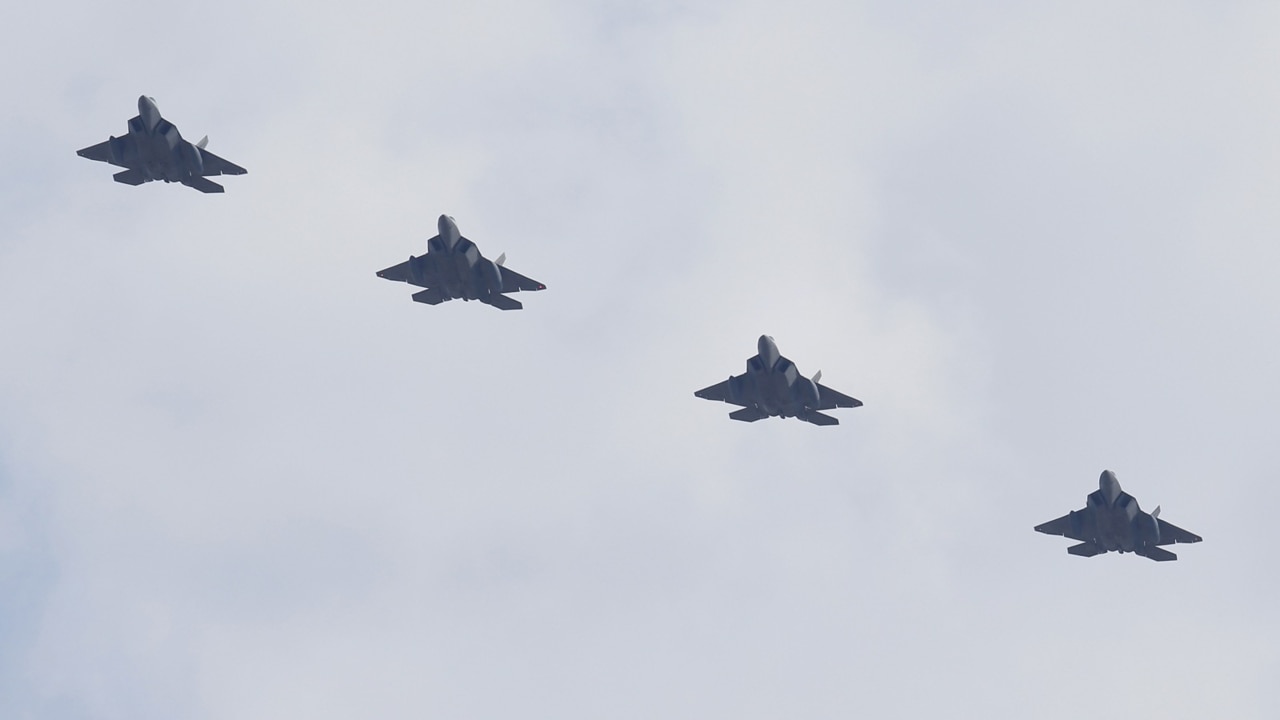
Mr Potter represents US firm RAVN, which has the rights to buy 41 of the former F/A-18 Hornets and wants to sell the aircraft to Kyiv in a commercial transaction.
RAVN declined to comment, but did not dispute recent reports on the negotiations.
The sale will require the formal support of the Australian and US governments, while Kyiv will need to stump up the cash from its Ukraine24 fundraising arm.
One of its backers rated the prospect of the deal coming off at about “80 per cent”.
While Australia has had no diplomatic representation in Ukraine since the start of the war, Mr Potter has been a frequent visitor to the country over the past seven months, and has struck up close relationships with senior officials in Volodymyr Zelensky’s administration.
Key among them is Mykhailo Fedorov, a close Zelensky confidant who serves as Ukraine’s Deputy Prime Minister for Innovation, Education, Science and Technology, and is a leading figure in the country’s international fundraising efforts.
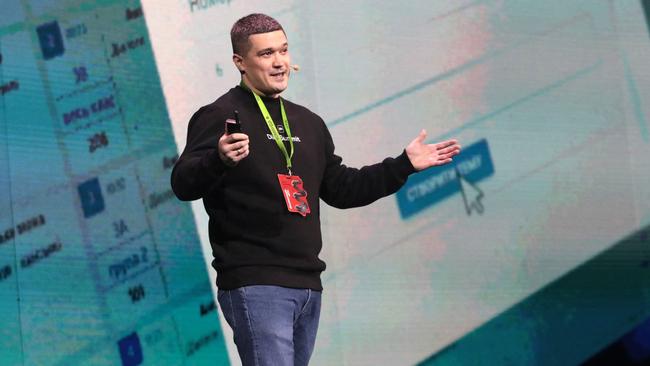
Mr Potter said he was not in Ukraine to make money, but believed his work there would pay dividends in the long run.
“I think if you believe your tech works – and my tech does work – then you need to put your money where your mouth is and put it to the test on the battlefield,” he said.
“If it stands up to that, it’ll stand up to anything. It’s the best market proof you could possibly have for anything in this industry.”
The self-taught programmer with a masters degree in national security studies from Flinders University has previously been a media commentator on cyber security, intelligence and geopolitics.
His CV says he worked for two years as BAE Systems’ “Head of Cyber Operations” in Sydney, and in an undisclosed cyber security role for the Australian government for two years and six months. He also lists past cyber security contracting positions with the US and Canadian governments.
Mr Potter’s company, co-founded with former army intelligence officer David Robinson, is backed by Joe Hockey’s Bondi Partners, among others, and counts retired major general Fergus McLachlan and former South Australian innovation minister Tom Kenyon as non-executive directors.
Mr Kenyon conceded that Mr Potter might appear to be an “international man of mystery”, but said the impression was driven by circumstance.
“We've been prepared to go somewhere where other people aren’t. Opportunities and unusual circumstances arise just because we’re there,” he said.
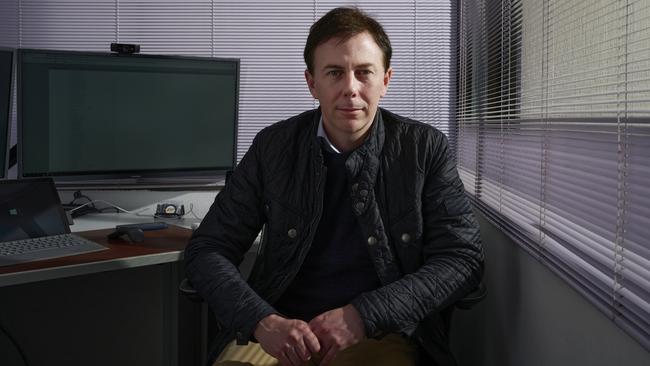
The firm, which has the US State Department as one of its major clients, sells two technological tools – a patented “cloaking” firewall that is said to hide networks from detection, and a digital sandbox that can be used to safely analyse files for malware.
The company made headlines earlier this year with its analysis of Chinese social media app TikTok, revealing it collected masses of data from users and had a “server connection to mainland China”.
In March, Mr Potter and Mr Robinson popped up at a two-day White House conference on the threat posed by ransomware. They were the only Australian firm invited to the event in a development that left mainstream competitors scratching their heads.
Major General McLachlan, who is highly respected in national security circles, said Potter’s willingness to go to work on the “cyber frontline” in Ukraine had won him respect in Kyiv, where he was putting his “reasonably high level of access” to good use.
He said Potter was a “disrupter”, who “says stuff and does things that aren’t normally done in Canberra”.
“He sees problems differently, and often comes up with different solutions than perhaps those of us who've grown up inside the bureaucracy,” Major General McLachlan said.
“It means he is not always easy to work with, including for me, but I’ve learned to respect the fact that these guys get shit done.”




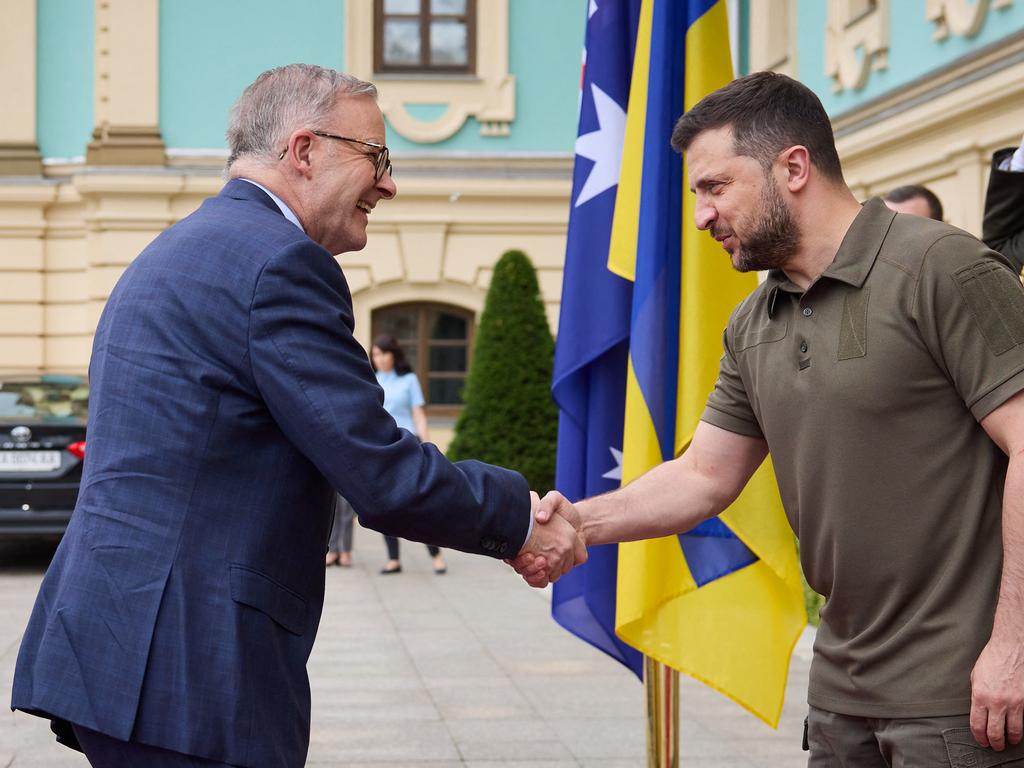

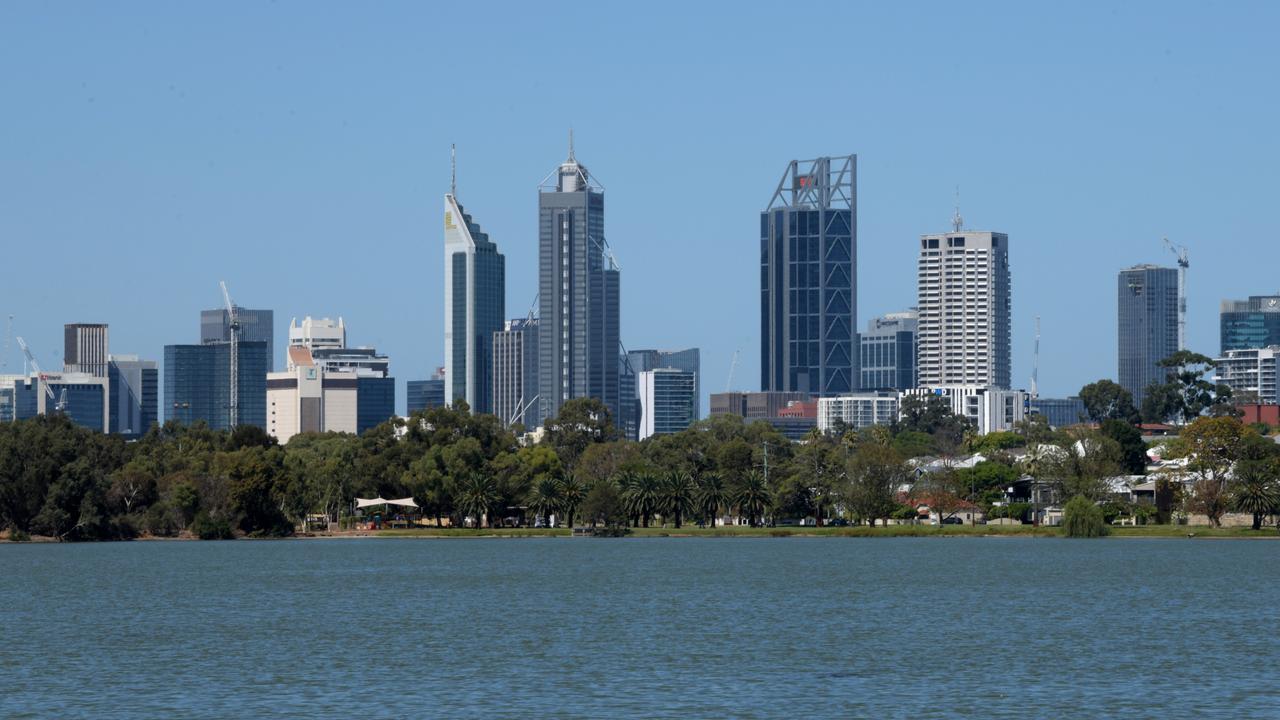

To join the conversation, please log in. Don't have an account? Register
Join the conversation, you are commenting as Logout